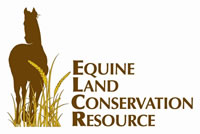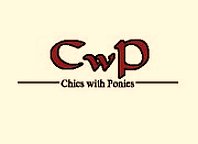THREATS WORKSHEET

A. Governmental Actions:
Governmental actions in the form of Laws, Rules and Regulations may reach business practices (changes in tax requirements for online sales); Environmental Factors (water run-off and manure handling); Zoning Limitations (where are horses allowed) and Labor Laws (hiring and paying foreign nationals) just as a few examples. Obviously, governmental actions can reach and affect us in many ways and not all of those ways may be good for your current business plans.
Special Focus: Community Opposition:
This is a growing and recurring issue. It occurs primarily through the use of environmental laws and regulations by community residents to halt development of horse farms and stables or to halt the expansion of an existing horse stable. Not everyone enjoys time spent at the barn or the smell of horses or watching horses at pasture. Some residential community residents feel that a nearby horse farm or stable will in some fashion ruin their home value or detract from their enjoyment of their land.
Opposition to the development of horse farms or stables and even horse trails and horse campgrounds usually involves the use of existing environmental regulations controlling manure, water run-off, water seepage, wetlands protection, and other environmentally sensitive concerns. While you might think that these rules and regulations may have been initially developed to protect rivers from the likes of a 200,000-count hog farm, the rules and regulations are used now to object to 22-stall horse stables. Make a further special not regarding an environmental protest: Even if your immediate neighbors do not object, many environmental objections can be brought by interested citizens who may be situated miles from you but who claim, for example, an interest in the local water table.
Keep in mind what the issue is. Horse farms and stables can and should be operated with environmentally sustainable practices and with health concerns for the horse and people. If the proposed plans do not address these issues, those opposed to your plans have a foothold to protest and deny licensing or zoning permits for the business. Until these matters are addressed, your business may be stalled or blocked permanently.
Citizen-opponents to planned horse stables or the expansion of existing horse stables, use a variety of arguments before Zoning Boards and Planning Commissions. Regulations may exist as to horse population density (horse per acre); how closely buildings may be placed to one another (farm layout); setbacks from highways and fences; signage, increased traffic flow due to shows; dust, smell, and flies; the dangers of horse urine; light pollution from installing lighting for nighttime riding; or the placement of living quarters in or near barns.
Do not rely upon what you may have heard described as a “grandfather” protection. In you state, there is probably no existing law called a “grandfather clause”. Generally, if a zoning change would prohibit an ongoing business, this would be considered a “taking” of property rights and eminent domain laws may apply. To avoid this, some businesses are grandfathered and permitted a non-conforming variance from the zoning or planning ordinance. Even so, if new regulations affecting fire, safety, or health are passed, the business may yet have to conform to these requirements. Further, if the business once operated, stopped for a while, and a new owner wants to re-open, the new owner may not be grandfathered. The stoppage of business may be considered an abandonment. Be careful in making purchases of ongoing business you thought were grandfathered and seek competent legal advice.
While such objections are considered as Threats to business plans, these Threats can be turned into Strengths through Compliance with Environmental Regulations. Consider also that even if winning all the arguments can cost you delays, legal fees, and court costs.

The leading national advocacy group in the United States that is working to preserve lands for the horse industry and stables is the Equine Land Conservation Resource or ELCR. Founded in 1997 upon the belief that the loss of land (occurring currently at the rate of 6,000 acres per day) is the greatest threat to the future of equestrian sport, recreation and the horse industry. The non-profit organization partners with major National Horse Associations and offers an online forum and Newsletter. Major Resources available include: Land Use Planning and Zoning including postings of current proposal around the U.S.; Trails and Access; Land Stewardship and Best Management Practices.
B. Competitor Plans:
Your competitor(s) may already be undertaking actions to alter their business plans or expand into areas you are considering. Learn as much as you can about the plans of existing and known future competitors. Regularly review their websites or announcements for information about future plans.
C. Disruption or Loss of Capital:
Economic changes can adversely affect your business plans. You could lose an Investor, Partner, Skilled Employee, or other key person you consider to be essential to your business. Develop contingency plans to handle the situations that you identify. For instance, have a plan to purchase (set out within your business agreement) to buy out a partner’s or key person’s business interest should they plan to leave or move.
If a particular necessary skill is being supplied by a single person, learn as much as you can about that skill. If you cannot master it, make sure you develop knowledge of other people who have similar skills and talents. Your key employee with these skills and talents may move, be hired away, or have their own entrepreneurial goals.
An overlooked disruption of business operations is planning for natural disasters. For example, if you live in a hurricane prone region, make plans to preserve resources, including the horses; have contingency plans for operation and re-opening.
D. Insurmountable Obstacle:
If you want to be an equine veterinarian and you cannot gain admission to a veterinarian school, you need a new plan. This Threat has no solution. Make sure you are not going down the wrong road and rethink your plans. Plans need to be practical and capable of realization. It is fine to dream; it is disastrous to hallucinate.
ANALYSIS:
Rank your Threats from most likely to least likely as best you can judge them to be.
Can you educate yourself and keep informed about governmental regulatory actions in order to minimize their effect on your business plans?
Can you feasibly alter your plans to make sure you are in compliance with governmental regulations?
What is the probability of Citizen Opposition and Protest?
Have you informed yourself well enough to have a reasonable idea of what actions your competitor(s) may take in the near future? How could you learn more?
If a key person were no longer available to you, how would you replace this loss of talent, skill, and ability?
What is the measure of financial downturn you can withstand?
KEY QUESTIONS:
If a threat comes to the forefront, have you designed within your business plan a method to alter your plan in order to pursue a secondary business purpose?
Can you find a way to work through your business plan without your key person? This does not assume you do not need them or want them, but suppose an accident befalls them? What then?
If there are significant governmental threats, can you devise a way through the governmental maze? In other words, can you figure out a way in which to comply with governmental regulations in a way that blocks competition? Can you use your knowledge and proposed business structure into a Strength?
NOTE: If you can remain in legal compliance and your competitor(s) either cannot figure out how to comply or how to restructure their business in order to comply, you will have created a Competitive Advantage and Strength.



